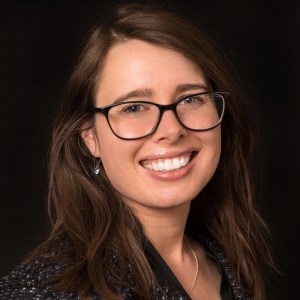Join us in person, Communication Arts & Sciences Room 191 (South entrance) or via Zoom (sign up here).
Event is Sponsored by the Rural Computing Research Consortium, Quello Center, American Indian and Indigenous Studies Program, and the Department of Computer Science and Engineering
Rural places have experienced pernicious digital inequities for decades. Recent Pew Survey data finds that 28% of rural households in the US do not have broadband Internet access. For years, solutions to this digital divide have involved trillions of dollars invested into infrastructure that never quite bridges the gap. Instead of playing a perpetual game of technology catch-up, rural communities might benefit from embracing multinetworked realities–heterogeneous connectivity options that exist unevenly across time and space.
In this talk, Dr. Vigil-Hayes will discuss the characteristics of a multinetworked reality and why it is likely to represent the future of rural broadband connectivity. She will then present findings from her work in New Mexico and Arizona that illuminate different ways to understand and leverage multinetworked realities to support increased access to networked services. This work weaves together threads from a number of methodologies that range from mobile network measurement, network architecture design, and ethnography and culminates in a vision for centering rurality in the design of new technologies for a multinetworked future. Importantly, Dr. Vigil-Hayes will highlight how rural places represent potential centers of innovation for reimagining network service delivery that can solve some of the digital inequities experienced in urban and suburban communities.
 Morgan Vigil-Hayes is an assistant professor in the School of Informatics, Computing, and Cyber Systems at Northern Arizona University. Her research focuses on human-centered networking, drawing on methodologies from computer networking and human computer interaction to characterize and critique existing network infrastructure and design new ways to connect people to information and each other. In particular, Dr. Vigil-Hayes has focused her research on how tribal networks in the US can inform the design of networked services through the lens of network sovereignty. She received the NSF CAREER Award in 2022 and looks forward to working with her community in Flagstaff, AZ to investigate new approaches to Internet measurement.
Morgan Vigil-Hayes is an assistant professor in the School of Informatics, Computing, and Cyber Systems at Northern Arizona University. Her research focuses on human-centered networking, drawing on methodologies from computer networking and human computer interaction to characterize and critique existing network infrastructure and design new ways to connect people to information and each other. In particular, Dr. Vigil-Hayes has focused her research on how tribal networks in the US can inform the design of networked services through the lens of network sovereignty. She received the NSF CAREER Award in 2022 and looks forward to working with her community in Flagstaff, AZ to investigate new approaches to Internet measurement.


